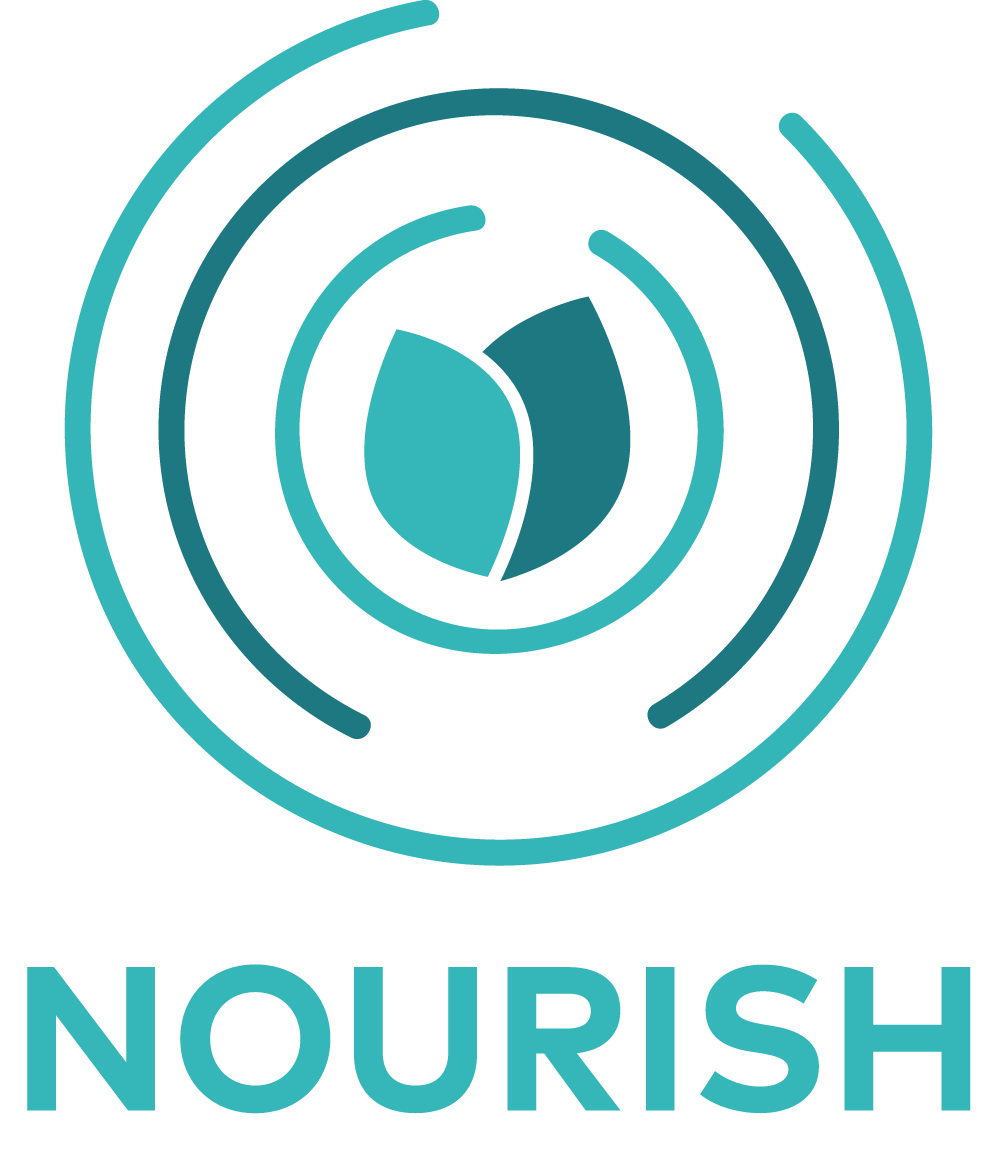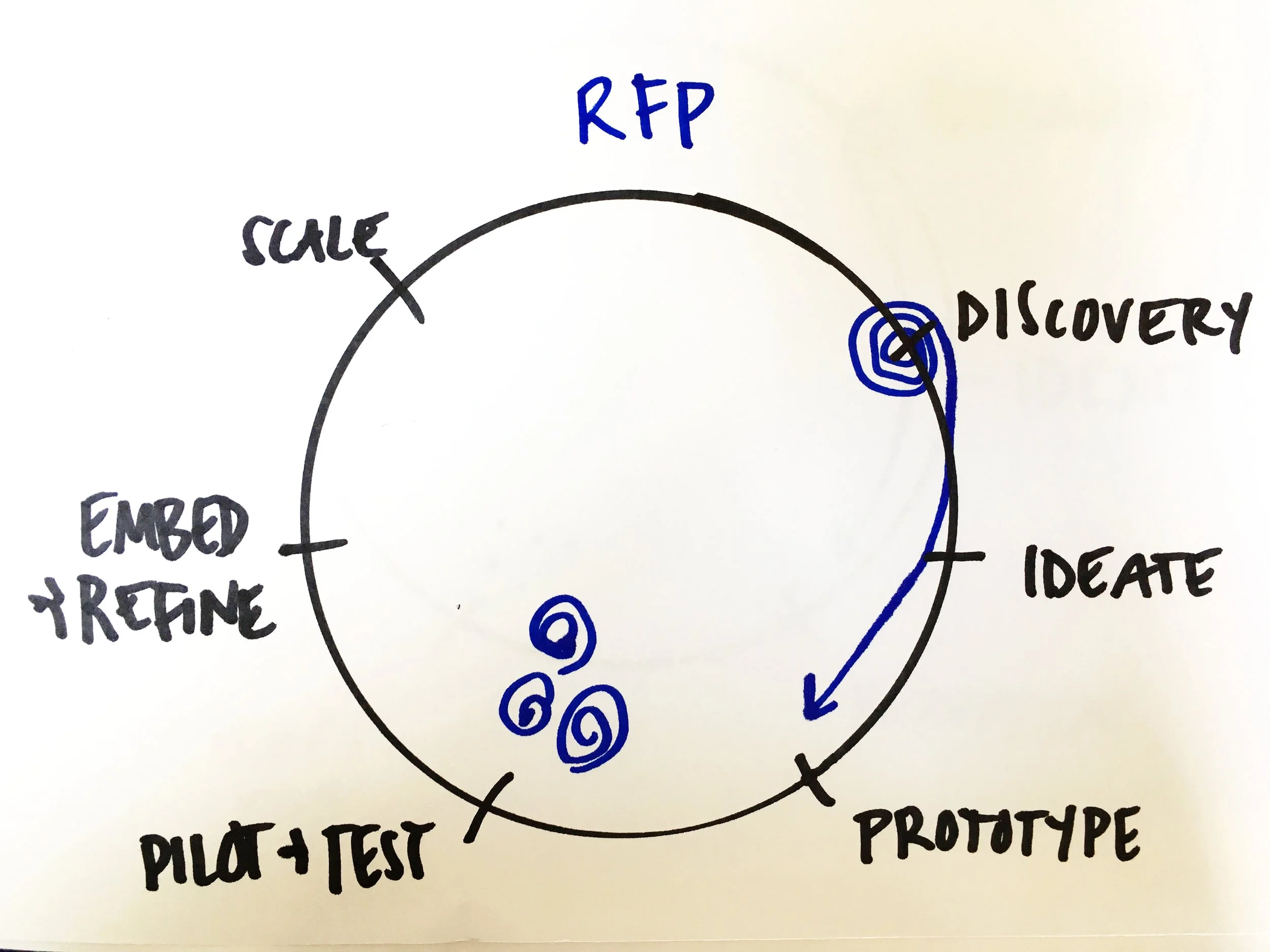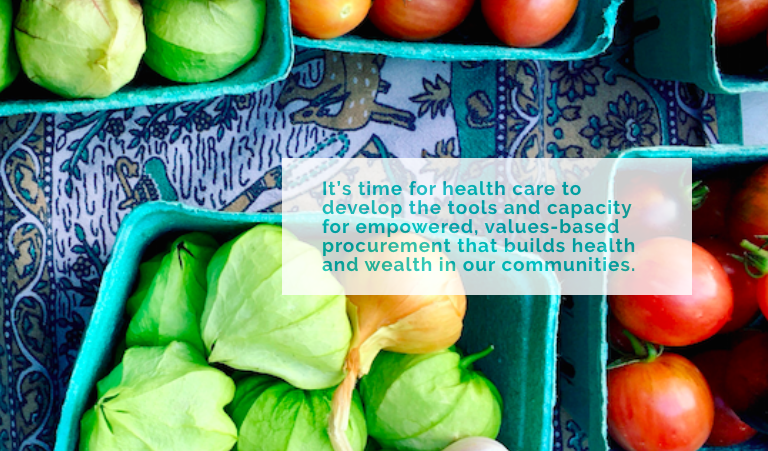For the past year the Patient Experience team has been researching and prototyping the tools for measuring patient food experience, and developing the resources for health care institutions to curate the best practices and research. They have rebranded the project as The Good Food Project in recognition of their shared goal of providing patients with wholesome, fresh and tasty food. Moving into their pilot phase, they are now recruiting sites and calling on Nourish Innovators and colleagues to test the tool for measuring patient food experience at their facilities. You can learn more on their website here.
Research presented at Transforming Food Systems for the Health of People and the Planet Symposium
Beatrice Dagenais, the Masters Student who is working with the Sustainable Menus collaborative project, presented her research project at the Transforming Food Systems for the Health of People and the Planet Symposium at the University of Montreal on August 22. She's done two test interviews and has the next ones scheduled. Apart from the fact that a couple of facilities have turned down her interview requests because she is not associated to their researchers, things are progressing very well!
Values-Based Procurement: July 2018 Update
Here’s a quick update from our team:
We are currently reviewing the 30 food services RFPs from public buyers in multiple jurisdictions; 10+ policies specific to food/catering; 30 reports/academic articles to identify which are most relevant.
Pulling out language and “low-hanging fruit” from existing RFPs, eventually trying to push the envelope on language available for writing more values-drivin RFPs.
Scanning for and pulling out measurement methods or tools for evaluating social and environmental criteria in food RFPs.
We welcome any resources related to evaluating sustainability criteria in food and catering RFPs. We keep coming back to the reality that “If we can’t evaluate the sustainability language, it’s useless!”
We plan to beta-test the two RFP tools we create this Fall, one for self-operated sites and one for sites who outsource food services. Be in touch with us if you are interested in reviewing and testing these tools, by contacting: Maija Fiorante, maijafiorante@gmail.com.
“I get goosebumps when we talk about this project, we need it so badly and I am so glad this is rolling!” says co-lead Donna Koenig.
Sustainable Menus: July 2018 Update
The sustainable menus team has been working hard to make the adoption of sustainable practice accessible to the food service industry in healthcare facilities.
Drafting of the Sustainable Menu Guide is well underway. Using the most current research across the agriculture, health, and social sciences, each chapter of the guide assesses and ranks food in terms of sustainability. The information is presented in a manner most useful to those in the food service industry, with tools to assess current menu sustainability and tips to integrate sustainable ingredients into practice. Thus far, proteins and starches have been completed, while vegetables, desserts, and beverages are underway. The guide connects with the work of other collaborative projects, such as values-based procurement and indigenous foodways. Research is being supported by Allison Gacad, a Loran Scholar at the University of British Columbia.
In addition, the team is working with Béatrice Dagenais, Master’s student, and Geneviève Mercille, assistant professor, at Université de Montreal. Their research, carried out in partnership with Nourish, is examining the feasibility of sustainable menu practices in healthcare food services. Through qualitative research with food service managers in Quebec healthcare facilities, this project will allow for a better understanding of different perceptions of sustainable menu practices in various contexts.
Indigenous Foodways: July 2018 Update
Following the discovery phase and prototyping exercises of our project over the winter and spring, our team is navigating a change of course. We’re moving away from our original project idea, creating a ‘How to’ guide, despite finding a lot of enthusiasm and support for this idea. You can read more about our process of creative destruction in our upcoming blog.
For now, we are re-focusing our efforts on Indigenous voices from across the nation. This fall we will host a gathering with our project team and Indigenous community members on Six Nations territory. We plan to go through a systems mapping process with Melanie Goodchild and Dan McCarthy, who are leaders in weaving Indigenous perspectives with complex systems-change initiatives. Our goal will be to gain a better understanding of the current reality, surface new insights about possible interventions, and build and strengthen relationships to move forward in a good way.
To stay in touch with our team, contact us at nourishTFP@gmail.com.
Food for Health Policy: July 2018 Update
In early April 2018, our team co-authored a letter for the Minister of Agriculture, Food & Rural Affairs to offer our support for the recent proclamation of the final pillar of the Local Food Act (Bill 36), which is to create targets and measures for institutional procurement of local food. Our experience has been that when healthcare facilities start to track their local sustainable food spend it helps them to change their purchasing practices and menus because they can measure progress and impact. See the attached case studies that highlight our team’s respective experiences. The enactment of this pillar will incentivize more thoughtful, values-based procurement from our public institutions, to build the vibrancy of our local food industries and to increase local food access.
Following the June election and change of government, we are now making plans to re-engage with the new government. "We were very proud of the letter and the case studies that we sent to the Liberal government,” says co-lead Marianne Katusin, “and we are ready to engage with the next government.” Out team is committed to knowledge transfer and sharing our unique tracking systems with other public sector organizations, and hope to be part of any consultations ahead related to the creation of specific procurement targets and measures. We would like to see a consultation process include our current vendors and manufacturers, and First Nations groups who are an important part of local food economies.
"One thing we've realized is that policy change is really slow,” says Marianne. “Getting the right people on board, setting up meetings, getting conversations going is difficult unless you really know somebody somewhere who can put you in touch with somebody somewhere. But we are excited and motivated as a team, and are adding another dimension to our work.” In parallel to our project around the Local Food Act, we are moving forward with plans to engage Health Quality Ontario with a proposal to create a new Quality Improvement Indicator related to the role of food in care.
You can stay in touch with our team by contacting: Marianne Katusin (mkatusin@haltonhealthcare.on.ca).
Welcome to Fasken Law & Buy Social Canada
Today we are delighted to officially welcome Fasken Law and Buy Social Canada as our partners on this project to bring value-based food procurement to Canadian health care. Under the leadership of Buy Social Canada's David Le Page and Maija FIorante, a scan of best-in-class social procurement language is currently underway. With the legal expertise of award-winning firm Fasken Law, led by Kathryn Beck, Vanessa Mui, and Daniel Fabiano, we will bring this research to life by developing and open-sourcing tested language for adoption by health care food purchasers. Read more here.
Upcoming Traditional Food Program Webinar: Feb 15
The Nourish Collaborative Project team on Traditional & Cultural Food Programs invites you to a conversation about their next steps in building capacity for delivering traditional and cultural food programs in health care. Taking place on Thursday, February 15, 3pm-4pm EST. Registration here.







